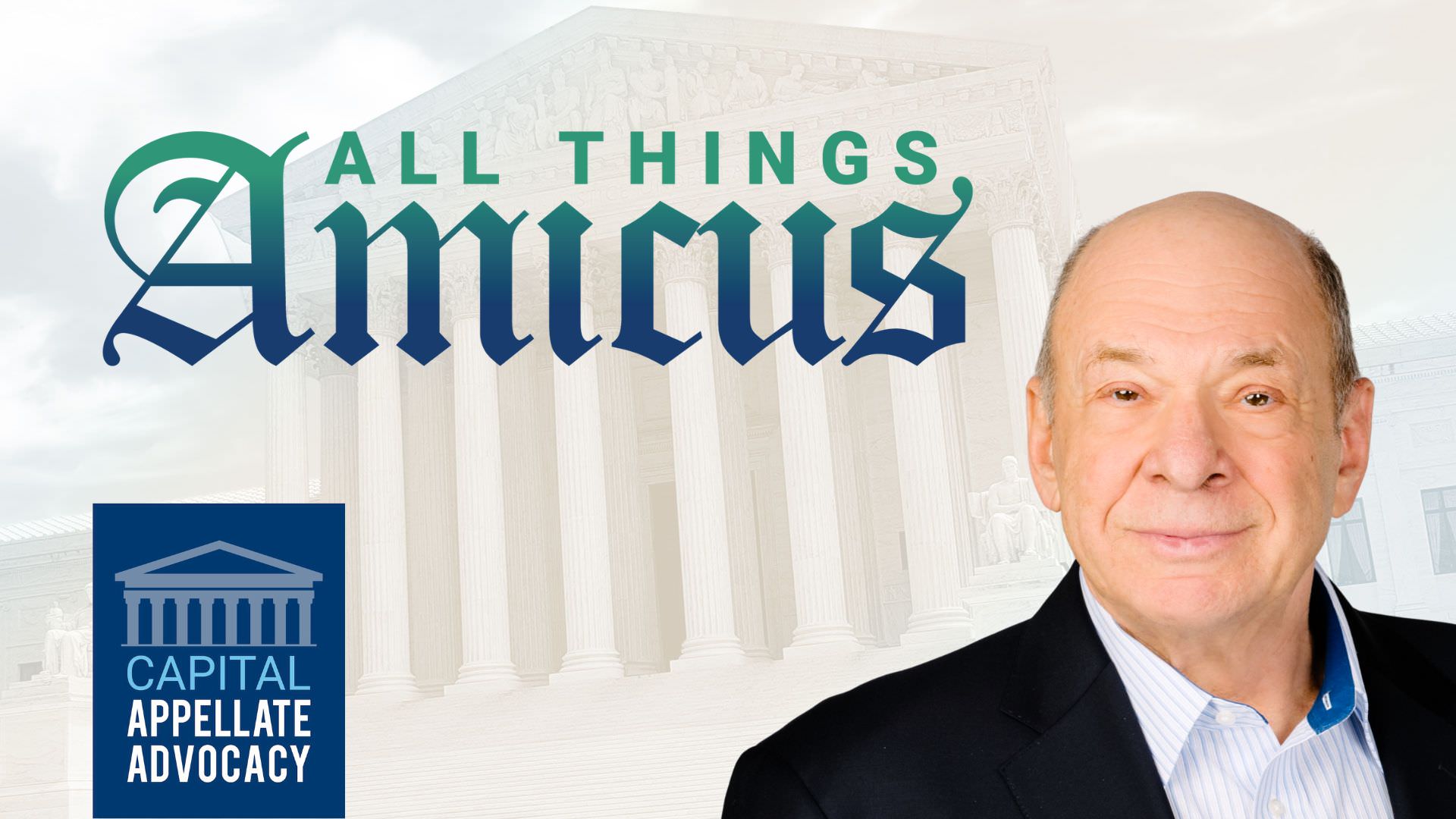Gears of War continues to be among the most popular Xbox “shooter” video game franchises. One of game’s original and recurring characters is Augustus “Cole Train” Cole, a brutal interplanetary “Delta Squad” warrior whose realistic face, voice, and physique closely resemble Lenwood Hamilton, a former professional wrestler. Hamilton filed suit in a Pennsylvania federal district court alleging that his face and voice were used in Gears of War without his consent. He seeks damages for violation of his state-law “right of publicity.” The Third Circuit affirmed the district court’s holding that the Gears of War developers are protected by First Amendment freedom of expression. Hamilton has filed a certiorari petition urging the Supreme Court to address the relationship between state-law rights of publicity and the First Amendment. Capital Appellate Advocacy founder Lawrence S. Ebner has authored an amicus brief on behalf of the Atlantic Legal Foundation (ALF) in support of the petition.
Issue Areas: Individual liberty; property rights
Case: Lenwood Hamilton v. Lester Speight, et al., No. 20-1123 (Supreme Court)
Question Presented: Whether, or under what circumstances, a commercial entity can invoke the First Amendment as a defense to claims that it has violated an individual’s state-law “right of publicity” by incorporating, without permission, his exact likeness into a very human-looking video game avatar (i.e., character) who has a radically different, extremely violent, persona.
Background: Lenwood “Hard Rock” Hamilton founded “Soul City Wrestling” in the Philadelphia area. He alleges that his state-law “right of publicity” was violated when a fellow wrestler assisted with development of the Cole Train Gears of War character, whose persona Hamilton finds to be abhorrent. This short video compilation of Cole Train’s “Top 5 Moments” illustrates Hamilton’s point.
Violation of an individual’s right of publicity is a state-law statutory or common cause of action most often asserted by celebrities or athletes who claim that their name or image has been misappropriated without consent or compensation. For many years federal and state courts have struggled to devise and apply a fair and predictable test that balances the right of publicity with First Amendment freedom of expression. The Third Circuit has adopted, and applied in the Hamilton case, a version of the “transformative use test.” Under this test, which is derived from copyright law, the more an individual’s image is transformed, the less likely it is that his or her right of publicity has been violated.
ALF’s Amicus Brief: In its petition-stage amicus brief, ALF highlights the divisions among federal and state courts, legal scholars, and practitioners regarding the appropriate test for balancing the right of publicity against freedom on expression. ALF’s brief not only urges the Court to grant review and provide guidance on what test should be utilized, but also argues that no balancing test should justify high-tech identity theft of an individual’s face or voice by encouraging deleterious transformation of his or her persona. To underscore the importance of the addressing the issue, the amicus brief discusses advancements in audiovisual manipulation technology, including in connection with the widespread use of video games.
* * *
Read more Atlantic Legal Foundation amicus briefs authored by Larry Ebner
Capital Appellate Advocacy founder Larry Ebner serves as Executive Vice President & General Counsel of the Atlantic Legal Foundation.

